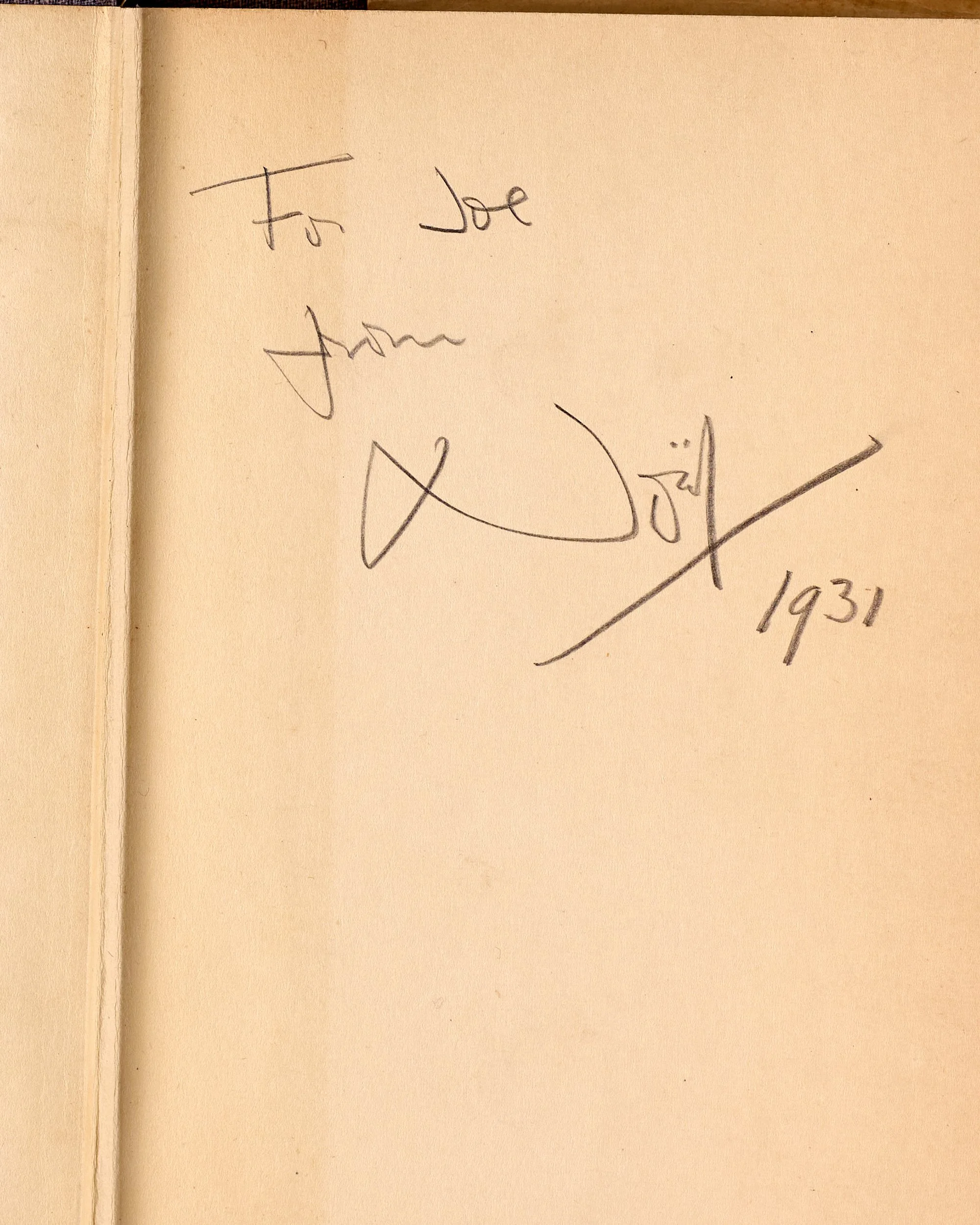 Image 1 of 2
Image 1 of 2

 Image 2 of 2
Image 2 of 2



Post-Mortem
COWARD, Noel
Post-Mortem. A Play in Eight Scenes.
London: William Heinemann Ltd, 1931
8vo., purple cloth, ruled in blind to upper board with publisher’s device embossed to lower; spine lettered in gilt; in the unclipped publisher’s dustwrapper (5/- net), printed in blue; pp. [x], 83, [iii]; a very good copy, slightly bumped at lower corner and at spine tips; spine lightly sunned; text block with mild shelf-lean and faint spotting to the fore-edge; upper edge a little dusty; the very good wrapper, seldom found at all, is here darkened to panels and spine, most so along folds; with nicks, chips and a couple of closed tears to spine ends and ends of folds, no longer than 1cm in length, with previous owner’s address in pencil to lower flap.
First edition, this copy signed by Coward in pencil to the front free endpaper ‘For Joe’, and dated in the year of publication.
In 1930, Coward had performed the role of Stanhope in R. C. Sherriff’s Journey’s End. Set in the trenches during the First World War, Coward was so moved by the performance that he was inspired to write his own "angry little vilification of war", and the play was first published here, the following year. It was, however, at Coward’s insistence, not performed until 1944, when it was staged by British prisoners of war at a camp in Eichstätt, Germany. The play was given permission to run only after the cast and backstage crew had given an undertaking not to use any props or equipment as means to escape.
A poignant play on the futility of war, copies are scarcely found both signed and in the elusive dustwrapper.
COWARD, Noel
Post-Mortem. A Play in Eight Scenes.
London: William Heinemann Ltd, 1931
8vo., purple cloth, ruled in blind to upper board with publisher’s device embossed to lower; spine lettered in gilt; in the unclipped publisher’s dustwrapper (5/- net), printed in blue; pp. [x], 83, [iii]; a very good copy, slightly bumped at lower corner and at spine tips; spine lightly sunned; text block with mild shelf-lean and faint spotting to the fore-edge; upper edge a little dusty; the very good wrapper, seldom found at all, is here darkened to panels and spine, most so along folds; with nicks, chips and a couple of closed tears to spine ends and ends of folds, no longer than 1cm in length, with previous owner’s address in pencil to lower flap.
First edition, this copy signed by Coward in pencil to the front free endpaper ‘For Joe’, and dated in the year of publication.
In 1930, Coward had performed the role of Stanhope in R. C. Sherriff’s Journey’s End. Set in the trenches during the First World War, Coward was so moved by the performance that he was inspired to write his own "angry little vilification of war", and the play was first published here, the following year. It was, however, at Coward’s insistence, not performed until 1944, when it was staged by British prisoners of war at a camp in Eichstätt, Germany. The play was given permission to run only after the cast and backstage crew had given an undertaking not to use any props or equipment as means to escape.
A poignant play on the futility of war, copies are scarcely found both signed and in the elusive dustwrapper.

